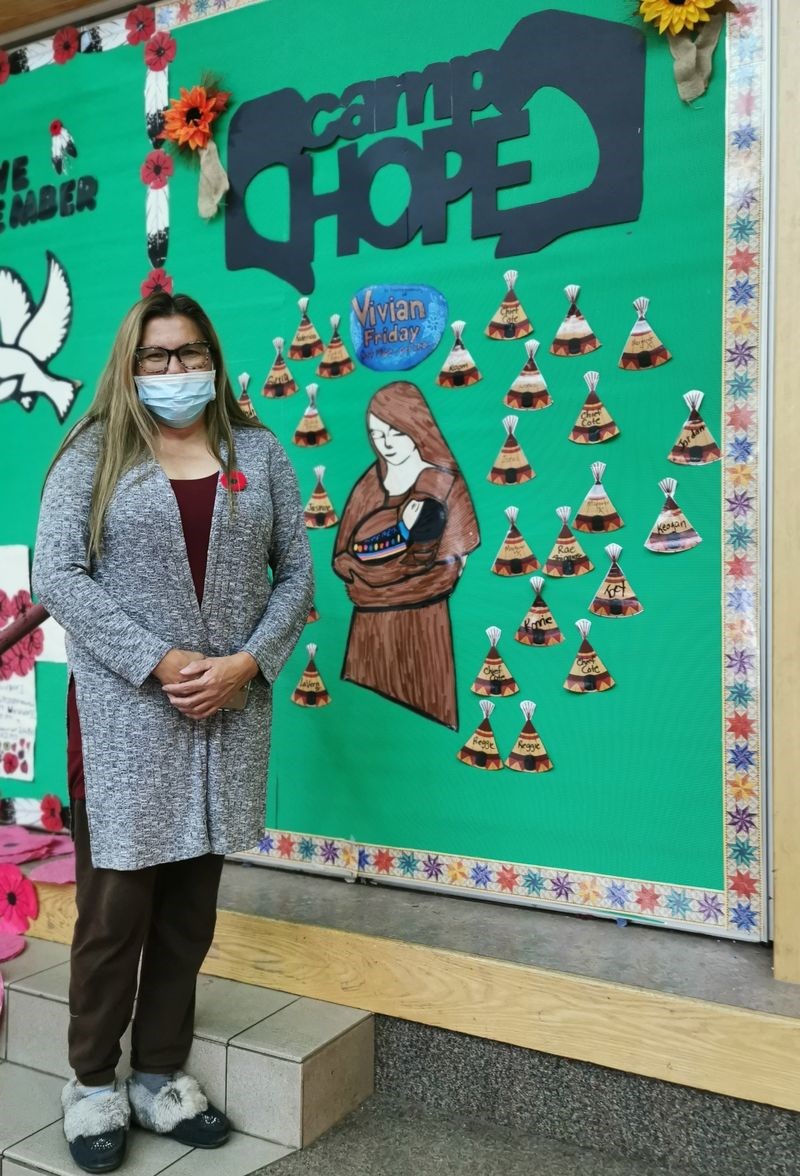As a mother of a child whose life is caught in the relentless grip of addiction, Helene, a member of the Cote First Nation near Kamsack, has no choice but to cycle through the emotions of fear, concern, frustration, and heartbreak.
According to our Canada’s Truth and Reconciliation Report, the reality is all too common for a significant percentage of Indigenous families who – to this day – carry the deep, invisible scars of trauma and dysfunction from the impact of residential schools. Cote said that without adequate mental health and substance abuse resources, the struggles with poverty, abuse, and suffering are consistently passed to new generations, despite best efforts to heal from them. Cote explained that while the term “intergenerational trauma” has been identified and well documented, efforts to remedy the situation are still in their infancy.
It was August of this year when Helene made a trip to the city to see if she could locate Robert John somewhere on the Regina streets where the homeless communities tend to gather. She said she often makes the trip to the city to bring food, clothing, and hygiene items to help her son in the only way she can. It happened to be a rainy day, so the concerned mother began searching among the makeshift shelters, asking if anyone had seen him.
“I started to look for him down some alleys,” explained Helene. “I found a bunch of people under a canopy at Fifth Avenue and Angus. There were four people huddled on some discarded mattresses and sleeping right there, wrapped in blankets.”
In a Facebook post, Helene outlined her experience on that particular day with the following sentiments:
“Feeling hopeless and defeated, this morning I ended up counting my blessings. Before I leave the city I always try find my son make sure he is fed and okay. I see lots of things in the hood. This morning was different. I took the time and looked. I noticed people sleeping under a building canopy. Could it be my son? Before I approached these people I went to Tim Hortons and bought coffee and breakfast sandwiches, thinking it would be a nice gesture.”
As Helene walked up to the group, she admitted she was kind of scared, but they were very friendly and welcoming. When she asked where they were from, she learned that two of them were from her homeland – the Cote First Nation. She knew their grandparents.
Helene explained she was looking for her son because he is homeless as well. They said they knew him and that “he was there last night.” Although she didn’t get to see Robert John on this trip, she felt relieved that he was okay.
As she continued to ask questions, Helene learned more about what daily life on the street looked like. She was told that each day was a constant search for shelter, free food, and discarded cans. When asked what they use for a washroom, the group shared that because many businesses won’t let them use their public restrooms, they are forced to squat in the bushes. They added that current resources like drug and alcohol detox programs come with little to no advocacy and long waiting lists.
“One thing they said that really stuck,” offered Helen, “They said: It’s really hard when you don’t have any hope. It’s hard to get sober when there are no resources and no one wants to help. It’s easier to just get high.”
As a mother of an addict, Helene has realized there comes a point where you have done everything you can to help. She said many family members have repeatedly opened their own homes to addicts who end up stealing from their loved ones out of desperation. The challenge is more than most can handle.
“You can try everything to help them, talk until you are blue in the face. But none of it works unless they want to get sober. They have to choose it for themselves. But the reality is the drugs are so powerful that they take full control over the mind and the ability to make good choices. Addicts have family who love them. Homeless people have family who love them. Not all, but most! I pray for him every day. As a mother of an addict I cannot save him. But I can fight for his human rights.”
With encouragement from Principal Jonas Cote at the Chief Gabriel Cote Education Complex where Helene works, the school is taking action to help those suffering from a lack of resources. Helene is spearheading a fundraising campaign to raise money that will help purchase basic hygiene kits that she intends to deliver to those living at “Camp Hope” – the name given to a group of people experiencing homelessness in Regina. The inner city tent camp was previously known as “Camp Marjorie” – named after a woman in need of housing support who died in a Regina park this year. The City of Regina has since moved the population indoors to protect people from certain death in the harsh winter season.
Helene has reached out to local businesses and gathered prizes as incentives for people to donate. The school has printed paper teepees that will display the name of each person who donates five dollars. On November 22, all teepees will be put into a drum and five names will be drawn to win prizes including an air fryer, food basket, blankets, or a grill. For those interested in making a donation to this cause and being entered to win a prize, e-transfers can be sent to Helene directly at [email protected]
“I’m not a politician,” Helene asserted. “I am mother who is urging our leaders to step up and take care of our people when they are not able to take of themselves.”




